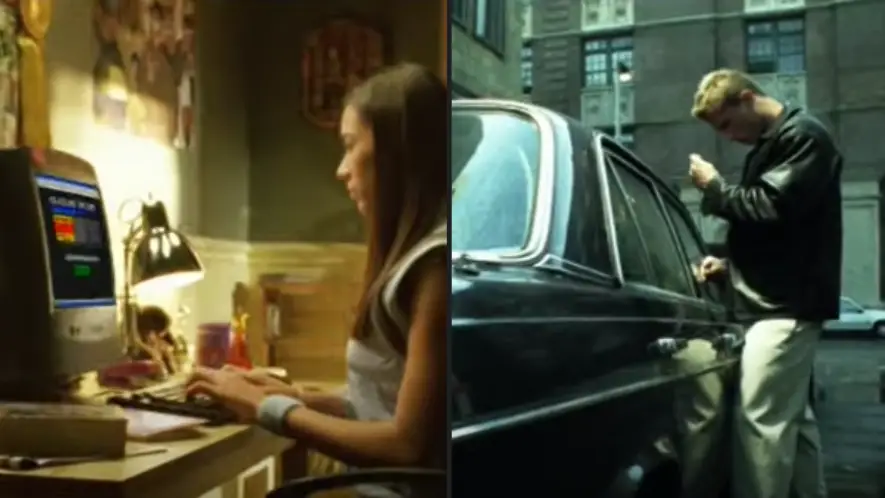
Years ago you couldn't rent a movie from Blockbuster without having to fast-forward through an annoying commercial telling you off for even thinking about pirating a TV show or movie.
Well, a new study has revealed those advertisements didn't work.
In fact, they had the opposite effect, and encouraged piracy even further.
Read More:
- Can Hackers Really Access Your Phone Camera To Film You?
- Netflix Strikes Deal To Offer Cheaper Plan With Adverts To Customers
- People Divided Over Huge Netflix Change For How They Release Movies
The advertisements were meant to make the Average Joe feel guilty and to do the right thing.
In actuality, all it did was make VHS-watchers groan in frustration while they hunted for the remote.
Advert
And, it turns out that the commercials actually made pirates feel morally justified while the film industry made themselves look out of touch.
That, and they just wound up as meme-fodder.
The study, which was first reported by TorrentFreak, was summed up spectacularly by the title: "Doing more with less: Behavioural insights for anti-piracy messages."
The study of those early '00s efforts to curb video piracy - with that 2004 public service commercial at the centre of Hollywood's crown on this - looks at piracy through behavioural economics.
In other words, they analysed how movie, music, and TV studios could have spent so much money on a campaign that went on to fail so damn epically.
The biggest reason the commercials failed is due to the fact the pirates didn't think they were doing anything wrong, the study claimed.
"Information technology seems to facilitate the moral disengagement of infringers, who do not perceive themselves as thieves," the study said.
“For instance, the terms used by infringers frequently feature a form of euphemistic labelling ('file sharing', 'fighting the system' and so on) and some pirates rationalise that unlike common theft, they do not deprive the owner of the copyright properly."
The study claimed that these public anti-piracy campaigns failed because they actually encouraged pirating, and kept it at the forefront of the public mind.
All the commercial did was make people roll their eyes over the stupidity of it all as they pressed fast-forward.
It was such a dumb ad it actually became one of the first memes at the dawn of the internet.
It became so infamous it was even parodied in pop culture, such as The IT Crowd.
According to the study, piracy is back in-vogue.
The study points to the Covid-19 pandemic, inaccessibility for some users around the globe, and the totally bonkers amount of streaming services nowadays.
It's difficult to measure how bad it is though, because data indicates the biggest movie pirates tend to be super users who funnel heaps of money into the industry buying legal content, according to TorrentFreak.
Topics: TV and Film, News, Weird